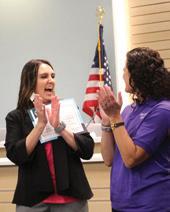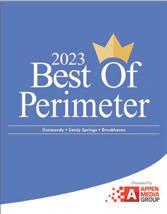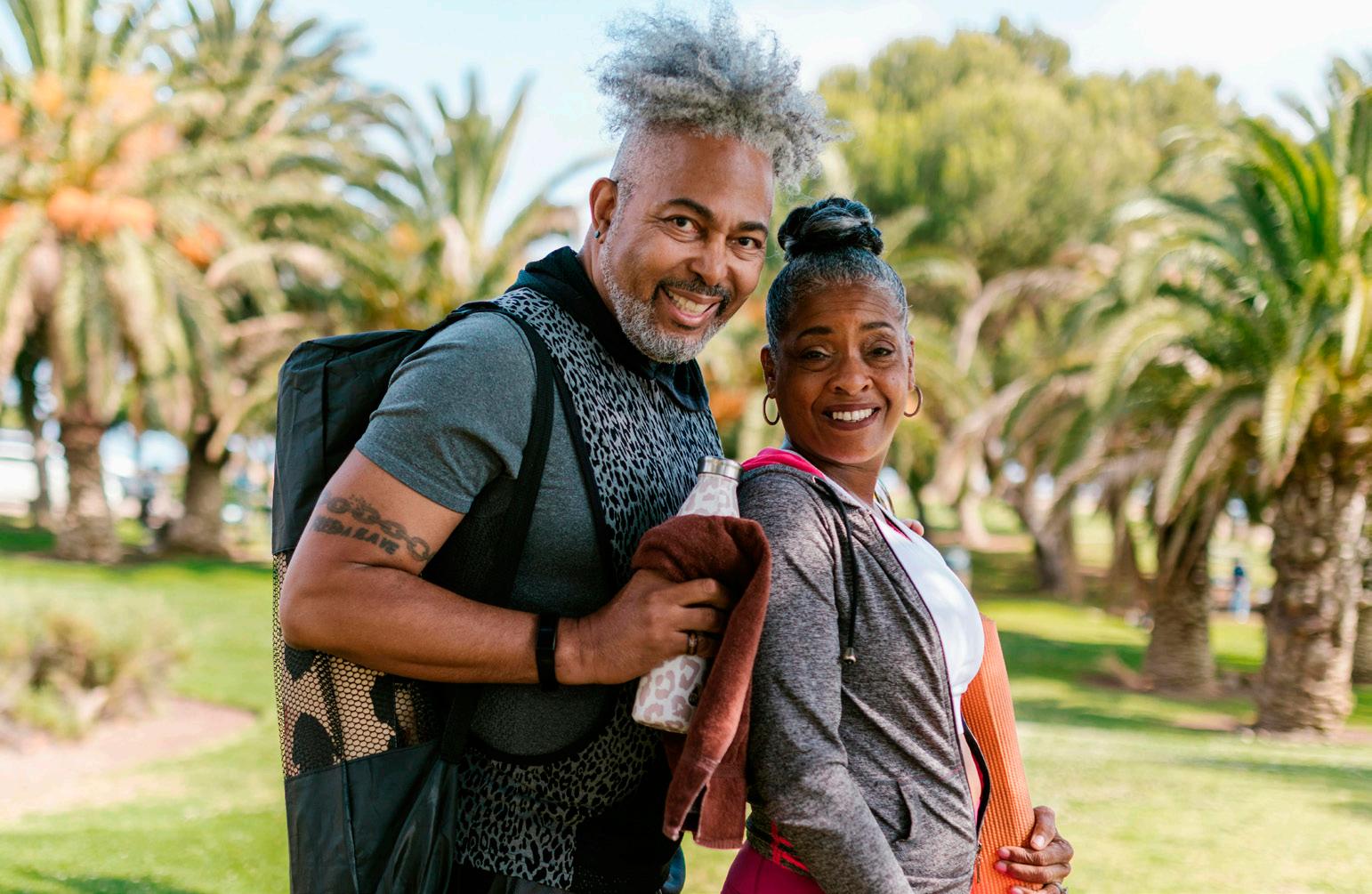

Healing with light
How Photobiomodulation is changing dental care


• Spa-Like Relaxing Atmosphere
• Free Nitrous Oxide and Oral Conscious Sedation
• Cone Beam 3D Radiography
Digital Scanner – No More Gooey Impressions
• Botox and Dermal Filler
Master Injector
• Platinum Invisalign Provider

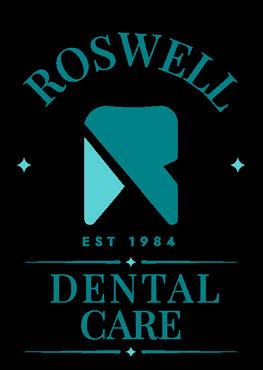
Red light therapy, also known as photobiomodulation (PBM) or low-level laser therapy, uses red and near-infrared light to stimulate healing, reduce inflammation, and relieve pain. PBM works by enhancing mitochondrial ATP production, cell signaling, and growth factor synthesis, while also reducing oxidative stress. This therapy is used for a variety of conditions, and dentists are using PBM lasers in many ways to make your treatment experience easier and your recovery faster. If you experience dentin hypersensitivity, TMJ pain, cold sores, lichen planus, or going through cancer treatment, PBM laser therapy can help!
1. Pain relief
After tooth extractions, root canals, or dental implants, this therapy can reduce discomfort- sometimes even better than pain medication, but without the side effects.
2. Faster healing
Whether you’ve had gum surgery or a sore spot from your denture, photobiomodulation helps tissues heal more quickly and naturally. Red or swollen gums? This therapy helps calm inflammation, making it great for patients with gum disease or other oral infections
3. Cold sore prevention and treatment
If you tend to get cold sores, you know how one can come on at inopportune times. Whether you’re feeling the first tingle or you have an active lesion, PBM drastically reduces severity and duration of cold sore. You can also receive treatments to help prevent developing cold sores in the first place!
4. Orthodontic comfort
Braces adjustments can be painful. Photobiomodulation soothes soreness and may even help teeth move faster, making your treatment shorter.
5. Cancer care support
Patients going through cancer treatments often get painful mouth sores (called mucositis). PBM lasers can reduce that pain and help those sores heal faster.
What to expect
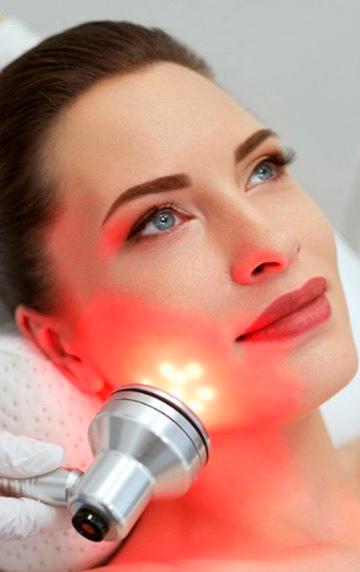
• Quick and Easy: Treatments usually take just a few minutes.
• Painless: No discomfort during or after.
• No Recovery Time: You can get back to your day right away.
A brighter future for your mile
Photobiomodulation is one of the most exciting innovations in dental care today, and we are excited to offer it at Roswell Dental Care. It offers a natural, drug-free way to help you feel better faster after dental procedures. If you’re curious about how it might help you, just call and we will be happy to explain how this healing light can brighten more than just your smile.
Dr. Destinee Hood gives your comfort and trust top priority. We assure you feel confident in any dental solution before beginning treatment after a thorough and comprehensive examination. For enhanced comfort, we offer FREE conscious sedation, including nitrous oxide. Rest assured that your experience will be positive, relaxing, and rewarding. Take the first step in feeling great about your oral health. Schedule your oral health screening and give us a call at (770) 998-6736 or visit www.RoswellDentalCare. com.
Destinee Hood
Wait, so you’re saying I have slug bacteria on my face from kissing my new boyfriend

Nemaslug® is a snail and slug pest-control product sold in England and Canada but not available in the United States. I first learned about this product while investigating a skin infection of a patient, and what I learned emphasizes that our connections with our creepy crawly garden neighbors are a little too close for comfort.
A female in her early 20s presented to clinic with a sore on her face that had been present a few days. It was solitary, several millimeters in size and did not seem like a lesion typical of acne. She was prescribed hydrocortisone 2.5% cream and mupirocin 2% ointment (an antibiotic), and a culture was performed to identify the type of bacteria present. Three days later, the results returned positive for Moraxella osloensis (M. osloensis). We were prepared to prescribe an oral antibiotic, but she was asymptomatic with the lesion having resolved with topical therapy.
Moraxella is a genus of gram negative bacteria that normally colonize the human respiratory tract. In medical school, we typically learn about Moraxella catarrhalis, which is a frequent cause of ear infection and pneumonia. Its cousin M. osloensis is almost never discussed due to its rarity. However, there are over fifty case reports in the medical literature of M. osloensis causing infections in both children and adults. Infections range from pneumonia to blood infections, genital sores and even brain infection. Sometimes, this bacteria has been found in the area of a cancer. One case report of a brain tumor found to contain M. osloensis pointed out that it is not known whether the bacteria caused the tumor or whether the tumor provided a hospitable environment for the infection.
Most interestingly, M. osloensis does not just piggyback on cancers. Rather, this type of Moraxella likes to piggyback on worms – nematodes to be precise.
Nematodes, also called “eelworms” or “threadworms” are small round slender worms that
infect a wide variety of animals and humans. The type of worm that infects salmon meat is in fact a nematode and is the reason one should only eat raw fish if it has been sufficiently frozen beforehand.
The same bacteria that infected our patient is actually sold commercially in certain countries outside the United States. Nemaslug® 2.0 contains the nematode P. californica and the bacteria M. osloensis. This nematode infects snails or slugs, but it can only complete its lifecycle and kill the snail if the bacteria M. osloensis is also present. Scientists believe that M. osloensis helps the nematode kill the snail by releasing a bacterial toxin that causes blood poisoning and death. The nematode and its side-kick M. osloensis both replicate and proliferate. The nematode needs the bacteria to kill the snail. The bacteria needs the nematode because the nematode is mobile and can wriggle its way to its next snail or slug. Nemaslug® 2.0 is not sold in the United States out of concern that it could harm our native and sometimes helpful snail and slug species with specific concern for species in the Pacific Northwest.
Our patient did not use Nemaslug® 2.0 on her face. She did mention having a new boyfriend. Because M. osloensis is a normal colonizer of the human respiratory tract, it is possible that our patient already had this bacteria in her own respiratory tract and happened to infect her own skin. However, since she had not experienced a similar lesion in the past, it is more likely that that she accidentally came into contact with this bacteria during contact with another human such as her new boyfriend.
From case reports in the medical literature, we know that M. osloensis can very rarely cause blood poisoning in humans. Perhaps we are more closely related to snails than we would like, or perhaps M. osloensis just makes a toxin that is highly effective across vastly different species. Regardless, I know I am not kissing snails anytime soon, especially if they look under the weather.
Insist on the BEST
Dr. Brent Taylor is a Board-Certified Dermatologist, a Fellowship-Trained Mohs Surgeon, and is certified by the Board of Venous and Lymphatic Medicine in the field of Vein Care.
He is an expert in skin cancer and melanoma treatment, endovenous laser ablation, minimally invasive vein procedures and cosmetics procedures such as Botox and injectables.
Kathryn is a certified physician assistant with over 22 years experience as a Dermatology PA and cosmetic dermatology.
Her specialties include general dermatology such as acne, eczema, rashes, hair loss, full body skin exams, abnormal growths etc. Kathryn also specializes in cosmetic dermatology including lasers, injectables, micro-needling, PRP, facial peels, sclerotherapy for spider veins and at home skin care.
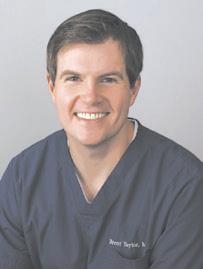
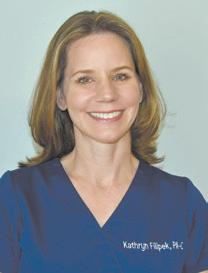
Kathryn Filipek, PA-C
Brought to you by – Premier Dermatology
How often should you really go to the dentist?
“See your dentist every six months.” It’s a rule we’ve all heard—but does it still apply to everyone?
While the twice-a-year guideline works well for many, the ideal frequency of dental visits depends on your individual health, habits, and risk factors. A personalized approach is often best for protecting both your smile and your overall well-being.
Why Go at All?
Beyond clean teeth, dental visits play a vital role in your overall health. Numerous studies show a strong connection between oral disease and systemic conditions. Regular checkups are important for early detection of issues before they escalate. For example, untreated tooth decay or gum disease can increase the risk of heart disease, diabetes, and other serious health problems
The Traditional Rule: Every Six Months
For decades, dentists have recommended cleanings and checkups twice a year. For many people, this is enough. Routine cleanings remove plaque

buildup, catch early signs of cavities or gum disease, and allow your dentist to screen for conditions like oral cancer or TMJ disorders.
One Size Doesn’t Fit All
Oral health varies from person to person. People with healthy gums, no history of decay, and excellent home care may only need to visit once a year. Others with higher risks such as smokers, diabetics, or those with a history
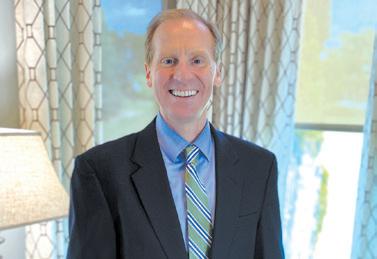
of gum disease—may need visits every three to four months.
Pregnant women may also benefit from more frequent checkups due to hormonal changes that can increase the risk of gum issues. Children, teens, and individuals with braces often require more frequent care.
An individualized plan helps catch small problems before they become serious—and prevents unnecessary visits.
The
Benefits of Regular Visits
Even with excellent brushing and flossing, only professional cleanings can remove hardened plaque (tartar). Many dental issues, including early gum disease and decay, develop without pain. Regular exams make it easier to treat problems early saving time, discomfort, and money.
Your dentist also checks for broader health concerns. Conditions such as oral cancer, sleep apnea, or acid reflux often show early signs in the mouth.
Special Considerations for Older Adults
As we age, the risk of gum disease increases. Factors like dry mouth, chronic conditions, and dental restorations make oral care more complex. Many older
adults benefit from seeing the dentist every 3 to 4 months, especially if they’ve had significant dental work or a history of gum problems.
If you have gum disease, your dentist or periodontist will recommend a customized maintenance plan with more frequent cleanings to manage inflammation and prevent bone loss.
The Bottom Line
For most, twice a year is a good rule of thumb—but it’s not universal. Ask your dentist what schedule is right for you. Keeping up with regular dental visits is one of the simplest, smartest ways to protect both your oral and overall health.
“Preventive Dentistry can add 10 years to human life." -Dr. Charles Mayo of the Mayo Clinic
Dr. Bradley Hepler and the experienced team at the Atlanta Center for Dental Health provide the most modern advances in dentistry. Experience immediate results with procedures to greatly enhance your smile and your health. If you would like a complimentary consultation to discover the best options for you, please call us at 770-992-2236.

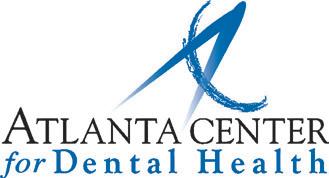
Got joint pain? Discover the power of SoftWave Therapy
Brought to you by – OlympusMD
If you’re struggling with joint pain, tendon issues, or soft tissue injuries, SoftWave Therapy might be the breakthrough you've been waiting for. This advanced, non-invasive technology uses unfocused acoustic shockwaves to stimulate the body’s natural healing processes—without needles, surgery, or downtime.
Originally developed in Europe and FDA-cleared in the U.S., SoftWave Therapy delivers high-energy sound waves that penetrate deep into injured tissues, jump-starting repair and regeneration. Unlike traditional pain relief methods that mask symptoms, SoftWave targets the root cause: cellular dysfunction and inflammation.
Here are some of the powerful benefits:
• Pain Reduction: Most patients report immediate and lasting pain relief—even after just one session.
• Accelerated Healing: The therapy boosts blood flow, activates dormant stem cells, and stimulates the production of collagen, essential for rebuilding tendons and ligaments.
• Reduced Inflammation: By modulating key inflammatory pathways, SoftWave helps calm chronic irritation and swelling, especially in joints and soft tissues.
• Improved Mobility: Whether it’s a nagging shoulder, tight hamstring, or arthritic knee, SoftWave enhances range of motion and functionality.
• Safe & Non-Invasive: There’s no need for anesthesia, recovery time, or pharmaceuticals. It's ideal for athletes, active individuals, or anyone seeking a drug-free solution.
Conditions commonly treated include plantar fasciitis, tennis elbow, shoulder impingement, sciatica, knee osteoarthritis, and post-surgical scar tissue.
In short, if you’ve tried physical therapy, cortisone shots, or pain meds without success, SoftWave might be the game-changer. It’s not just about managing pain—it’s about healing smarter.
Talk to OlympusMD about how SoftWave can be integrated into your personalized treatment plan. Relief is possible—without the side effects.

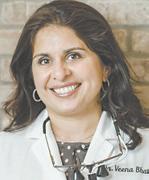


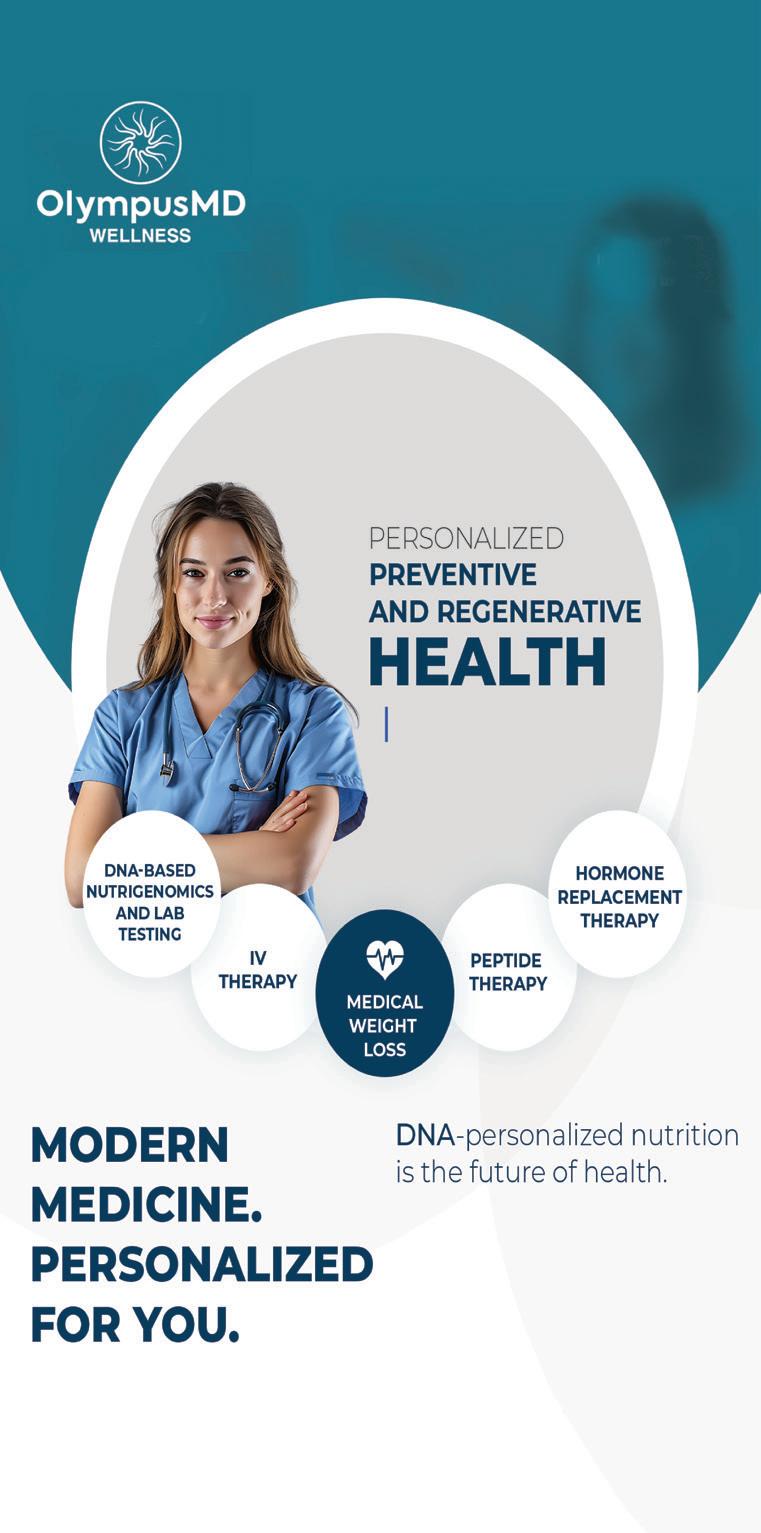

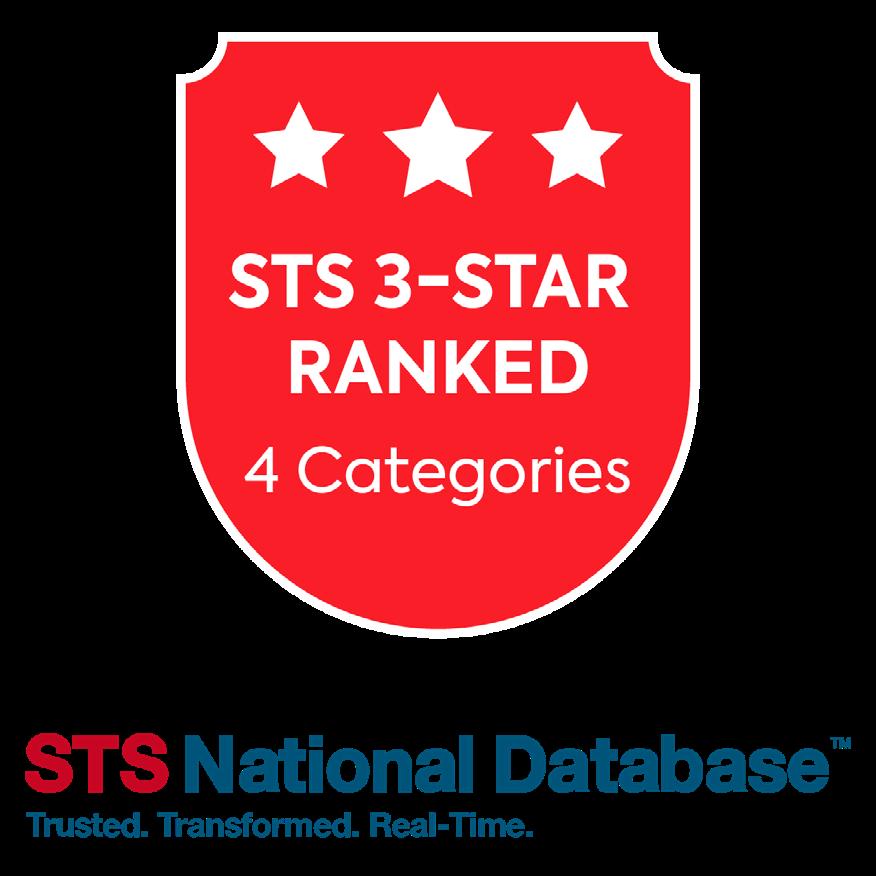
Wellstar Achieves elite national recognition in Cardiothoracic Surgery
Cardiothoracic surgery team earns top ratings in all categories, placing it among the nation’s best programs
Brought to you by – Wellstar Center for Cardiovascular Care
Wellstar has achieved a rare milestone in cardiac care, earning the highest possible rating—three stars—in four categories evaluated by the Society of Thoracic Surgeons (STS). This distinction places the cardiovascular surgery program, based at Wellstar Kennestone Regional Medical Center, among the elite cardiac surgery programs in the U.S. and Canada.
The STS Star rating system is one of the most rigorous, verified and respected measures of quality in healthcare, based entirely on objective patient outcomes and implemented medical care processes. The latest analysis covers a three-year period, from January 2022 to December 2024, and evaluates performance in four key areas: isolated coronary artery bypass grafting (CABG or open-heart surgery), aortic valve replacement (AVR), AVR + CABG, and multiprocedural cardiothoracic surgeries. Wellstar Ken -
nestone earned the coveted three-star rating in four.
Wellstar Kennestone previously held three-star ratings in two categories. This latest achievement marks a significant advancement, solidifying its position as a national leader in cardiothoracic surgery.
“This new accomplishment speaks volumes about the skill, precision, and teamwork of our cardiothoracic team,” said Wellstar Cardiothoracic Surgeon Dr. Richard Myung. “We’re proud to deliver exceptional outcomes for patients from across the Southeast who have some of the most complex heart conditions.”
With a team of more than 110 cardiologists and cardiovascular surgeons, the Wellstar Center for Cardiovascular Care is home to one of Georgia’s most comprehensive cardiovascular programs. Its flagship, Wellstar Kennestone, was the first hospital in the state to earn the prestigious Comprehensive Cardiac Care Certification—the highest distinction
awarded by the Joint Commission and the American Heart Association.
For more information about heart care at Wellstar, visit wellstar.org/heartcare.
Wellstar Center for Cardiovascular Care
4500 Hospital Blvd., Suite 320 Roswell (770) 410-4520
2450 Old Milton Parkway, Suite 206 Alpharetta (470) 267-0430
Wellstar North Fulton Medical Center 3000 Hospital Blvd. Roswell (770) 751-2500

A team of advanced heart care specialists means more expertise for you.
At Wellstar, you’ll find more than 100 cardiologists and cardiovascular surgeons across our cardiovascular services team who are ready to care for you. Whether you need preventive screenings or treatment for complex heart conditions, your heart is in good hands with our skilled team— highly rated by patients like you.
We are leading the way in Georgia and beyond with innovative technology and experienced clinicians to ensure you have the expertise you need close by. Learn how Wellstar can help keep your heart going strong at wellstar.org/northfultonheart.
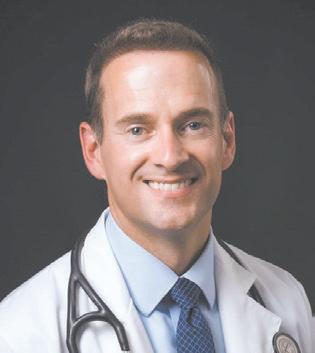

Personalized cancer treatment
Has your oncologist ever talked to you about personalizing your cancer treatment? In other words, has he or she looked at unique aspects of your case, and tailored your treatments accordingly?

Of the various medical specialties, oncology is arguably the least personalized of all. Patients with a certain type of cancer typically receive the same first-line treatment. If that doesn’t work, they will receive the next best – or second line – treatment. Following treatment flow charts this way has been referred to by some critics as “cookbook medicine.” Sadly, there is some truth to that criticism.
As an integrative oncologist, I believe that treatment should be as personalized as possible. This means that we must first peel back the various
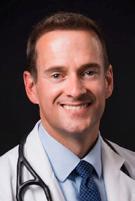
layers of each patient’s diagnosis before making treatment decisions. The type of cancer is certainly important, but that is only part of what makes each patient’s cancer unique.
For example, we must also consider each patient’s medical history, family history, work history, relationships, emotional health, and stressors as well. These details, coupled with advanced testing on the tumor tissue itself, are all important when crafting the optimal treatment protocol for each patient. This is what personalized cancer treatment is all about!
If you would like more information about my innovative cancer clinic, please visit my website at tcfam.com.

STEGALL
ISTOCK
UV Safety Awareness Month with Dr. Kehinde Olumesi
Brought to you by - Epiphany Dermatology
As a board-certified dermatologist, I see firsthand the effects of ultraviolet (UV) radiation on the skin every day. While sunshine has its benefits—boosting our mood and helping our bodies produce vitamin D—unprotected exposure to UV rays is the leading cause of premature skin aging and skin cancer, including melanoma, the deadliest form.
July is UV Safety Awareness Month, and it’s the perfect time to recommit protecting your skin. Whether you’re outdoors for just a few minutes or enjoying hours of summer fun, your skin remembers every sunburn, tan, and unprotected exposure. Over time, this damage accumulates and can lead to significant consequences.
The good news? Sun protection is simple and effective. Wear a broad-spectrum sunscreen with SPF 30 or higher every day, even when it’s cloudy. Reapply every two hours when outdoors. Seek shade, especially between 10 a.m. and 4 p.m., and wear protective clothing, sunglasses, and a widebrimmed hat.
And don’t forget your annual skin check. Early detection of skin cancer can be life-saving, and regular visits with a dermatologist help keep your skin healthy year-round.
Protecting your skin today helps preserve your health and appearance tomorrow.
— Dr. Kehinde Olumesi

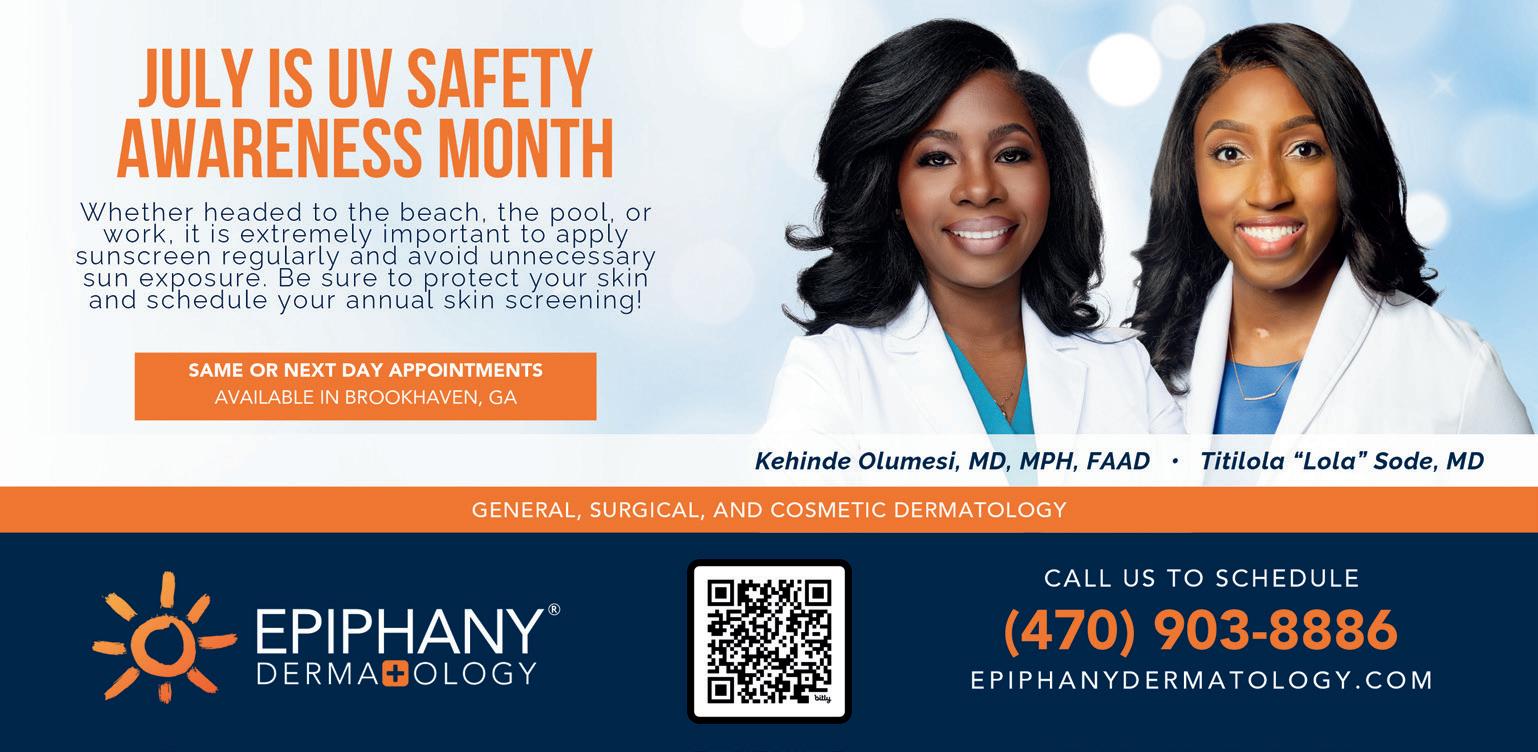

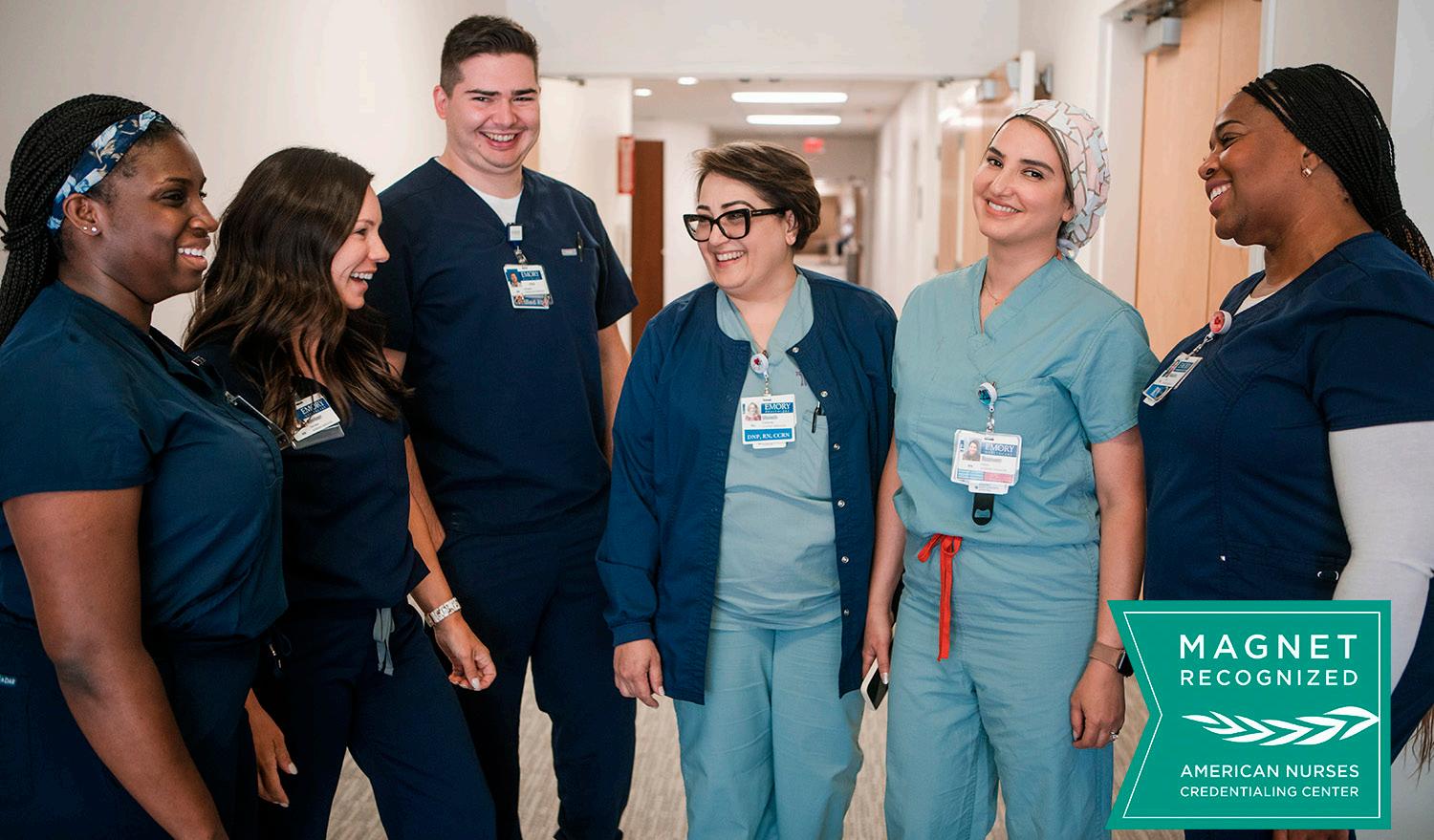
The gold standard in heart care
How Magnet® Designation makes a difference
Brought to you by - Emory Heart & Vascular
If you have a cardiac condition, you already know how important it is to find a specialist you can trust to care for you at every stage of your heart-health journey.
But your nursing team is also a vital part of your care, too. Whether you are visiting for a heart check-up, undergoing cardiac rehabilitation or having bypass surgery, nurses play a critical role in ensuring you receive high-quality care.
But how do you find excellent nurses? You can’t connect with them by searching the internet for “great nurses near me.” But you can look for a heart program that makes nursing excellence a high priority. An academic health system like Emory Healthcare is dedicated to achieving the gold standard for nursing excellence: Magnet designation.
What is Magnet Designation?
The American Nurses Credentialing Center (ANCC) established the Magnet Recognition Program almost 30 years ago. Magnet designation is the ultimate nursing credential. It recognizes quality patient care, nursing excellence and innovations in professional nursing practice.
The application process is thorough and time-consuming. Many organizations strive for Magnet designation but never achieve it.
Earning Magnet designation is proof of a rock-solid commitment to excellent health care. Emory Healthcare is the only health system in Georgia with six Magnetdesignated hospitals and the state’s first and only Magnet-designated ambulatory practice, Emory Clinic.
Our six Magnet-designated hospitals include:
• Emory Johns Creek Hospital
• Emory Saint Joseph’s Hospital
• Emory University Hospital
• Emory University Hospital Midtown
• Emory University Orthopaedics & Spine Hospital
• Emory Decatur Hospital/Emory LongTerm Acute Care
Magnet designation is a significant professional accomplishment for all of our nurses. But more importantly, it reflects our nursing team’s sincere concern and compassion for every patient who entrusts their care to Emory Healthcare.
Magnet makes a difference in your heart care
Magnet designation tells you that Emory Healthcare creates an environment where nurses in every specialty can thrive. That’s certainly true in cardiac medicine. Throughout the health system, our heart nurses care for patients with expert knowledge and sensitivity, whether helping them manage a chronic condition like heart failure or coordinating their care before or after surgery. Our heart nurses:
• Work with physicians and other health professionals to provide high-quality patient care.
• Educate patients about their condition and treatment.
• Help design new care models.
• Lead quality improvement teams.
• Participate in cardiac research.
• Use the latest technology and patient care practices to help you heal.
Ready to transform your heart health?
If you need heart care, turn to experts at the top of their field. Emory Heart & Vascular brings together more than 150 physicians and 18 specialized programs in cardiology, cardiothoracic surgery and vascular surgery.
Next-day new patient cardiology appointments are available at one of our 23 locations.
Visit emoryhealthcare.org/transform to learn more and schedule an appointment.
Family history of heart disease? Emory Heart & Vascular can help rewrite it.
MORE TREATMENT OPTIONS

Our expert heart & vascular team pioneers the most innovative techniques and treatments. Giving you more options and better outcomes than anywhere else. To make more “tickle monster!” moments like this possible.
The difference? Emory Women’s Center at Johns Creek uses research and innovation in health to provide exceptional care, close to home. From routine gynecology and menopause management, to high-risk pregnancies and specialty care, our team is here for your journey no matter where it takes you.
Visit emoryhealthcare.org/history to schedule an appointment.
Visit emoryhealthcare.org/women to schedule an appointment.
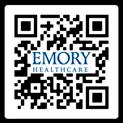
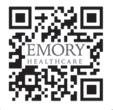
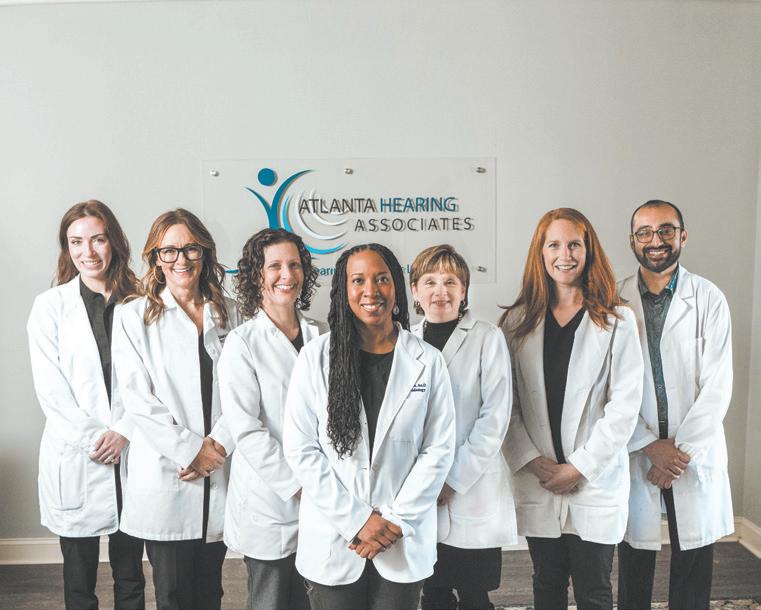
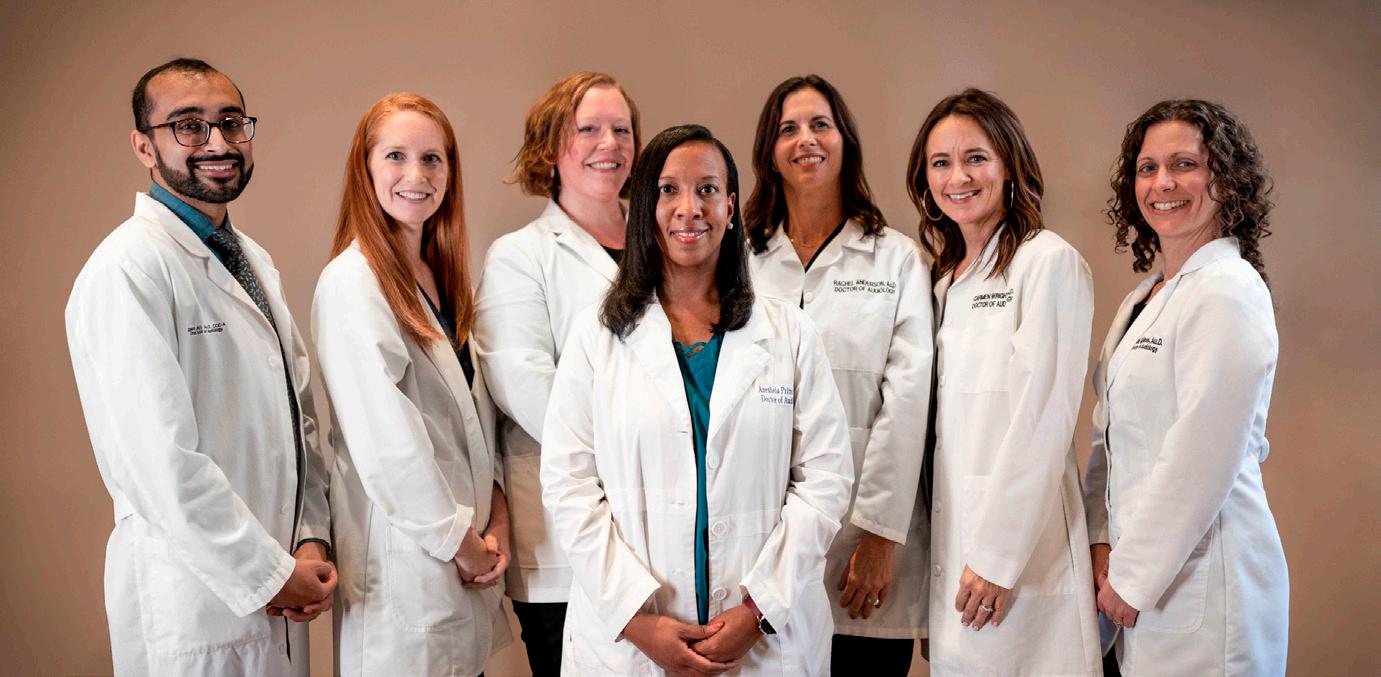


























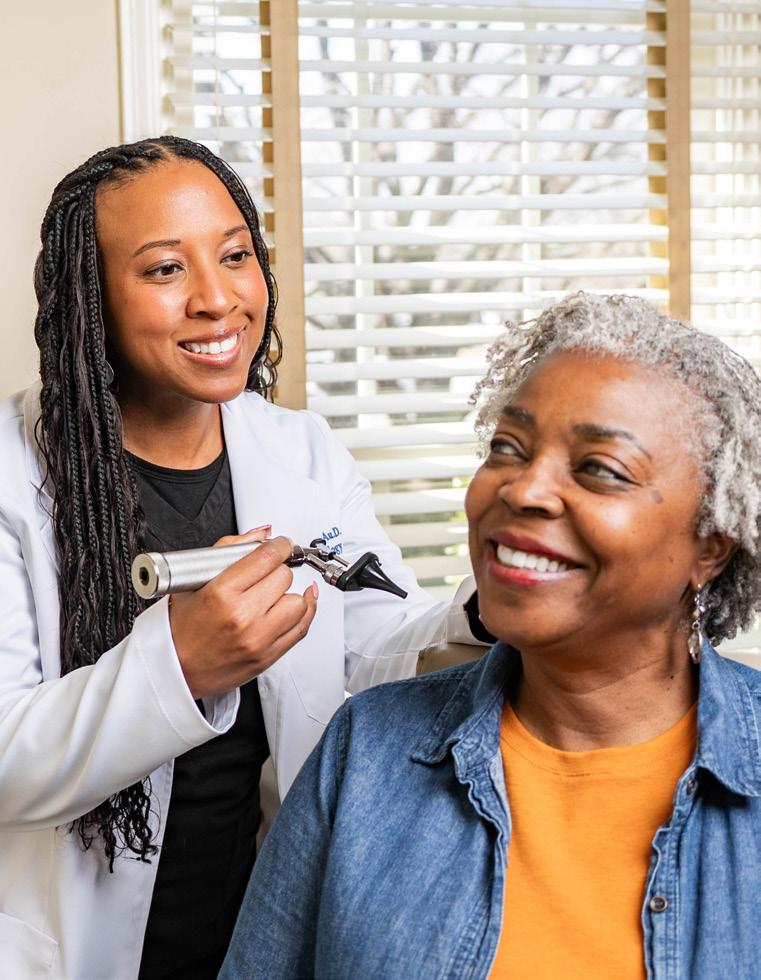
Atlanta
Atlanta Hearing Associates is a large audiology practice that encompasses 5 different locations throughout Georgia. Our offices provide comprehensive hearing tests, tinnitus assessments, ear cleaning, and hearing devices for all ages.
Every doctor you will meet is focused on your needs as a patient and works with every manufacturer to provide
a personalized fitting. Each location utilizes state of the art technology and family-oriented care to help guide our patients to the best hearing devices and information on hearing healthcare.
We also partner with different agencies to provide audiological care to veterans, ATF officers, reservists, police departments, Cochlear implants recipients, and community wellness groups.
We accept all major insurances for patients who have a hearing healthcare benefit that they are eligible to use.
Our offices are located in Atlanta, Decatur, Dunwoody, Lake Oconee, and Milledgevile.


















